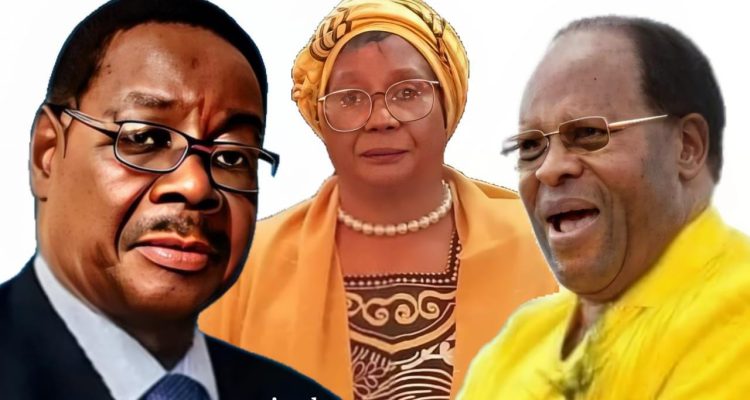
Bakili Muluzi, Joyce Banda, and Arthur Peter Mutharika, three of Malawi’s former heads of state, have strongly condemned the violence and unlawful actions that erupted on November 13, 2024, in Lilongwe.
The violence occurred during peaceful protests by citizens who were rightly voicing their concerns over the chaotic registration process for the 2025 General Elections.
The former leaders expressed outrage at the brutality inflicted on demonstrators, calling it a severe assault on the nation’s democratic principles.
In a joint statement, the three former Presidents stated that the actions of the police, which were witnessed during the protests, represent a grave violation of the rights guaranteed by the Malawian Constitution and international law.
They pointed out that the events were not only unlawful but also directly contrary to the principles of justice, order, and human dignity upon which Malawi’s democracy is built.
“The violence witnessed on November 13 was an affront to our hard-won democracy. This brutality against peaceful demonstrators represents a direct attack on the freedoms enshrined in our Constitution and the international agreements we are signatories to,” the former President said.
The former leaders emphasized that the Malawian Constitution, along with international treaties under the United Nations, African Union, and Southern African Development Community (SADC), guarantees citizens the right to free and fair elections conducted by an independent electoral body.
They also highlighted that these documents protect the rights to freedom of expression, assembly, and association.
Section 40 of Malawi’s Constitution guarantees political freedoms, while Section 38 enshrines the right to peaceful demonstration. The former Presidents called on all authorities to respect these rights, particularly as Malawi approaches the critical 2025 elections.
“It is vital that Malawians are allowed to peacefully assert their constitutional right to participate in the electoral process. Democracy thrives when citizens can freely voice their concerns without fear of violence or intimidation,” they said.
In light of the events, the three former Presidents made the following demands:
Firstly, the Inspector General of Police must launch an immediate investigation into the violence, arrest all perpetrators, and ensure they are held accountable. Video evidence from the incident must be used to support swift action.
Secondly, President Lazarus Chakwera and the Malawi Congress Party (MCP) must publicly condemn the violence and disassociate themselves from such actions. They must reassure citizens that such brutality will not be tolerated again.
Thirdly, The Malawi Electoral Commission (MEC) must urgently review its decisions that have contributed to the crisis, including the controversial use of the Smartmatic system. Voter suppression caused by the National Registration Bureau (NRB)’s failure to issue Mzika cards to eligible voters must be addressed immediately. Transparency and accountability are non-negotiable.
Fourthly, The National Registration Bureau must fully comply with the court ruling requiring its presence at all registration centres to ensure every eligible citizen receives their Mzika card promptly. Additionally, the failure of the Election Management Devices (EMDs) to register new voters in the NRB system must be resolved to prevent further complications with the voters’ roll.
The former Presidents concluded their statement with a call to action: “The time for action is now! Our democracy demands it. The citizens of Malawi have a right to free, fair, and transparent elections. It is our collective responsibility to ensure that the integrity of our electoral process is upheld.”
As the nation heads into the 2025 elections, the demand for electoral justice is louder than ever. Muluzi, Banda, and Mutharika’s call for action serves as a crucial reminder that democracy is fragile and must be safeguarded at all costs. The message is clear: Malawi must work together to ensure that its upcoming elections are free from violence, manipulation, and disenfranchisement.














